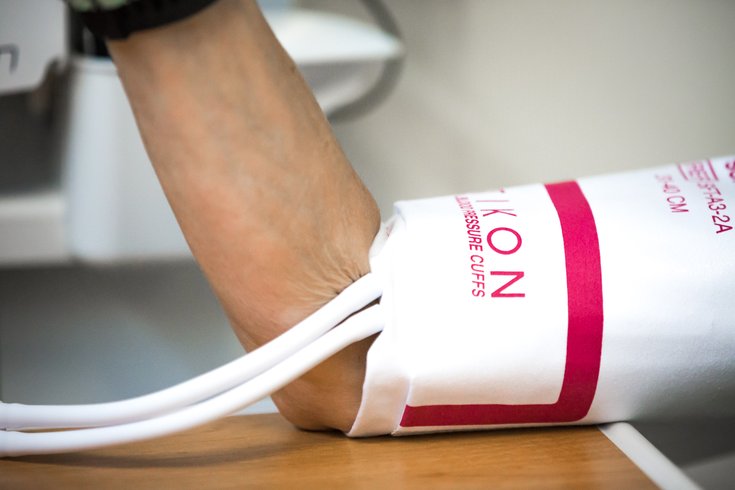
December 08, 2023
 Thom Carroll/for PhillyVoice
Thom Carroll/for PhillyVoice
Hypertension does not typically present symptoms, making routine screenings the best way to catch it.
Spouses can share more than just a bank account or last name. Researchers found that married heterosexual couples tend to share hypertension, too, in a new global study published this week.
The study followed nearly 34,000 middle-aged or older couples in China, India, England and the United States; researchers zeroed in on these nations because hypertension, or high blood pressure, is prevalent in all of them, affecting about 30-50% of adults.
Hypertension affected about 40-65% of the survey's participants, but researchers found the concurrence rate across couples more interesting. In all four countries, wives married to husbands with hypertension were more likely to have the condition themselves than wives of husbands without hypertension. The same was true for the study's husbands.
One explanation for the results was the fact that all of the couples lived together, sharing the same kitchens and groceries. The authors also pointed to the couples' lengthy marriages — the average was 30 years or more — concluding that even if one spouse tried to encourage healthier habits, "the couples' health influence on each other may converge over time."
Based on these findings, the researchers suggest that couple-based interventions may be effective at preventing or managing hypertension in these countries. Possible interventions include joint screenings, program enrollment and skills training.
Earlier this fall, the World Health Organization reported that nearly 80% of people with high blood pressure do not receive adequate treatment. This is explained, in part, by another finding from the WHO's research: Nearly half of adults with hypertension don't know they have it. Most people with high blood pressure do not experience any symptoms, making routine doctor visits the only reliable way to catch it.
When left untreated, hypertension can increase the risk of stroke, kidney problems, heart attack and heart failure. Experts generally recommend exercising, managing stress and limiting alcohol consumption to lower blood pressure. Cutting back on salt also is crucial — reducing sodium intake can be as effective as some hypertension medications in managing hypertension, a separate study concluded last month.
Follow Kristin & PhillyVoice on Twitter: @kristin_hunt
| @thePhillyVoice
Like us on Facebook: PhillyVoice
Have a news tip? Let us know.